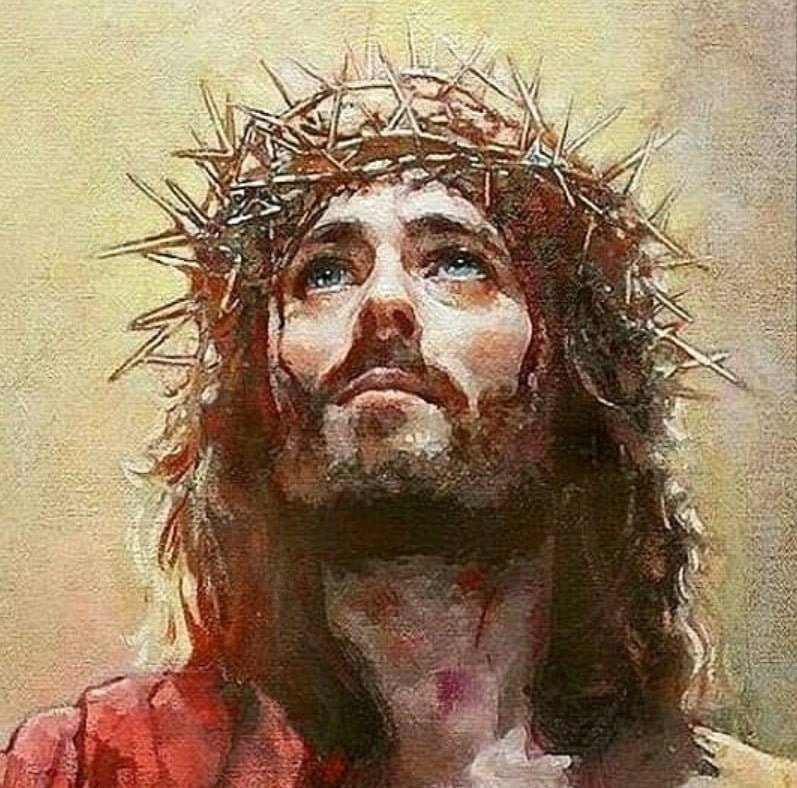

But the good news in the Incarnation is that our Father loved us so much that he sent his Son all the way into the world, all the way into our humanity where we are, sent to find us in our lost and forsaken condition and to join himself to us in the midst of our brokenness, our lostness and to heal us from within…. We are the lost and wandering sheep, we’re the prodigal children and feel that we’ve wandered way outside of the Father’s grace and care. He knew how it is to be with us in a lost and forsaken humanity which he wore in perfect holiness and sinlessness…. He really knew what it was to wrestle against temptation. But Scripture teaches that Jesus truly was tempted in all points as we are. But often, we tend to think of Jesus as a kind of superman – that he wasn’t really touched with mortal frailty like the rest of us are, that he didn’t really know what it’s like to live in this broken world, to live among people who feel like God has forsaken them, to know the difficulty of temptation. He took it in union with the Holy Spirit, so it was a humanity he wore sinlessly. So he took to himself that which we really are, it was a real humanity. Within the Virgin’s womb, he was joined with the Holy Spirit to become both God and man. In the Incarnation, Jesus was born of Mary, and received in that, since he came from the seed of Adam’s race, the race that had fallen. A God who even cries on the cross, “Eloi, Eloi, lama sabachthani?” – “My God, my God, why have you forsaken me?” When everything is darkness and we feel forsaken, our brother Jesus, our blessed high priest, has said that on our behalf on the cross. This is a God who loves us to the uttermost, comes into the midst of our brokenness in order to redeem us. This is not a God who sits aloof from us, outside the universe, playing with our lives like a puppet on a string.
#JESUS CROSS FREE#
God takes our diseased and alienated sinful humanity upon himself, suffers and finally dies the death that all of us will someday experience in order to set us free for fullness of life. God’s goodness turns out to be far better than we ever would have dreamed, because God, rather than simply overcoming evil by a show of brute force, enters into the middle of it. That is part of the narrative of the Trinity at work, so to speak. What God has assumed in becoming human is to assume God-forsakenness, to assume that condition. What has God become in becoming human? God has become the sinner, which simply means without personal sin he still has a death nature, he’s going to die of something, because he has assumed death as a consequence of original sin. The job of pastoral ministry is to connect those two narratives…. There is that narrative of God’s love and God’s grace. I love them, and because of my love, I’m going to come with them, I’m going to redeem them, I’m going to bring them out, and they will be a sign that I love, and am willing to include all the families of the earth. There’s also a narrative, God says, “I hear their cry” – the Old Testament. “My God, why have you forsaken me?” – that’s the narrative of humanity. Every person has a narrative – it’s their life, it’s their suffering, their losses, their pain, the questions they’re raising, “Where is God in my life?” That’s their narrative. How do we connect the reality of our doctrine of God with the reality of people’s lives? We do that in narrative form. But for God to overcome human death, God has to become human and God has to assume that human death, so that when God the Son, the Logos (as John 1:1 says), enters in to become flesh, has in a sense, placed God from below…. Torrance said, you have to go back to the fact that the one who was born from the womb of Mary was born to assume the human estrangement, to assume the sentence of death, so that, in that sense, Jesus as the incarnate Son of God is a dead man walking. Jesus says, “God, my Father, why have you forsaken me?” This has to be, not only the language of Psalm 22, the human lament of forsakenness that Jesus takes on his own lips, but it has to be that God himself has, in a sense, assumed a humanity estranged from God, so that atonement begins in Bethlehem. The one who dies on the cross has to be as fully God as the Father in heaven. The Trinity says that God is both above and he is below, God is involved. Quotes from Theologians on the Interview Program You’re Included Jesus Christ: Did God Forsake Jesus on the Cross?


 0 kommentar(er)
0 kommentar(er)
